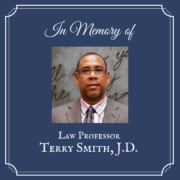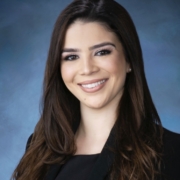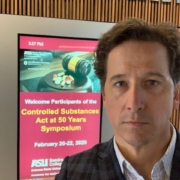Law School to Career: My first experiences as an Associate Attorney
At St. Thomas University, we are committed to the success of our students inside and outside of the classroom. Our Law School to Career series will feature and celebrate STU Bobcats and their internship and first job experiences. Get to know STU Bobcat, Ian M. Corp, and about his first job experiences as an Associate Attorney.
1. Name: Ian M. Corp, Esq.
2. J.D./ LL.M/ Concentration/ Certificates: Juris Doctor
3. Graduation Year: 2018
4. Where do your work and what is your title? What was your previous title & place of employment?
I am an associate attorney at Lydecker Diaz practicing premises liability, constitutional claims, and labor and employment matters defending private clients and local municipalities in state and federal court. Previously, I was an associate attorney at Cole, Scott & Kissane handling workers’ compensation defense matters.
5. How did you find out about your current job and secure it? How did that process differ for landing your first job?
I found both jobs through the same medium: My network. Regarding my current job, a friend of mine and I worked as law clerks in the same firm during law school. Although we had different career paths, we kept in touch and while I mentioned to him that I was looking to make a change from my prior job, he advised that Lydecker Diaz was hiring. He connected me with a colleague of his who worked there, that led to an interview, and the job I hold today. And for my prior job, after I got the news I passed the Florida bar and shared same, a former classmate of mine from St. Thomas advised that the firm was hiring. She put me in touch with the partner at the firm for an interview, and my first job as an attorney.
6. What does a day at work look like? How does this differ from your first job?
Every day is different. Some begin with Court, others with visiting clients—no two are ever the same. Some days have me spending mornings in Court, afternoons conducting a site inspection with a client to investigate a case, and evenings drafting legal memoranda to apprise clients of our analysis of claims. Managing your own case load as a young attorney comes with unexpected challenges that differ from my first job, which was strictly task-based.
7. What’s your favorite part about your current job? Does it differ from your previous job?
At my current job, I’m fortunate to be part of a great team wherein we all get along and communicate well with each other—in and out of the office. This allows us to easily communicate with each other our ideas for cases and work on strategy together, it was also a factor in deciding to move on from my prior job. Overall, being a part of this team leads to better results for our clients.
8. What challenges did you face at your first job? How have you overcome them to be successful at your second place of employment?
As a new attorney being thrust into a new area of law, it forces you to think on your feet and learn quickly—or fall behind. That was the biggest challenge at my first job and it took a few months to begin feeling comfortable practicing. At my current job, these challenges are still present because although I have considerably more experience, each day presents new learning opportunities. To tackle this, I cultivated a mindset of constantly being a student and learning the nuances of a situation to find the best approach—especially when handling matters I’m not familiar with. To ensure the best possible outcome for clients, I conduct additional due diligence to ensure that I’m taking the appropriate steps.
9. How do your jobs connect back to your coursework and extracurricular activities at STU?
My first job arose out of a relationship I formed during my time at St. Thomas law, and I’m grateful for it. Also, my experience serving on the Moot Court Board and competing at the Burton D. Weschler First Amendment Competition allowed me to develop my oral advocacy and writing skills—both of which I use every day in my current job.
10. What advice do you have for Bobcats that are starting the job hunt?
Develop and maintain your network. You might think that you don’t yet have a network of individuals but you do: Classmates, professors, and colleagues from outside of law. It’s important to remember that every person you speak with could lead you to a new opportunity. Keeping that in mind has brought me—and countless others—success.
Learn more about how Career Development can help you find the right internship or job for you!
If you’re interested in sharing your internship or first job experience with STU News? Reach out to Yamile Rodriguez at yamilerodriguez@stu.edu.







